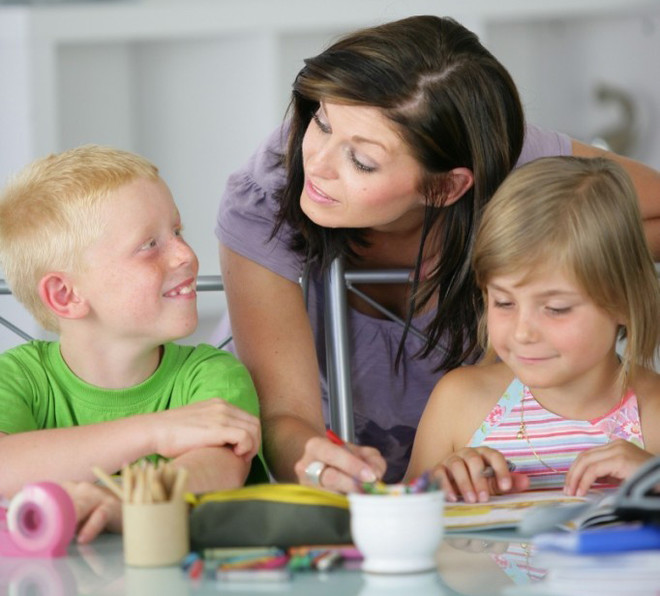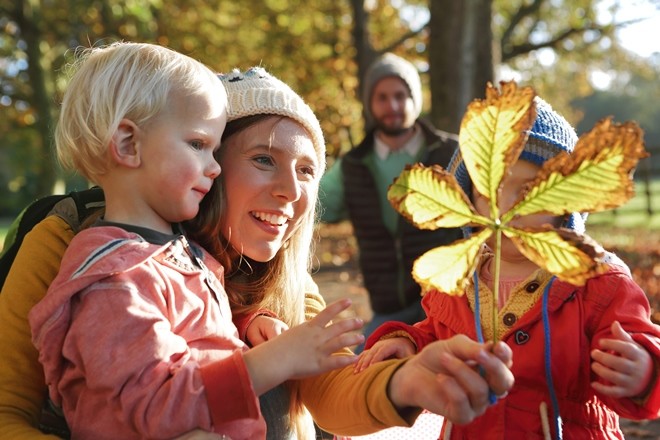Notching words will not help. Just take it for granted. Remember how they taught themselves verses: if you memorize mechanically, immediately after the lesson from the verse in your head there will be no rhyme left. It is best to develop a child's vocabulary during the game. In such verbal games you can play anywhere: on the way to a kindergarten, to school, to a store, in transport, for a walk. As soon as you notice that the kid's attention began to switch to extraneous objects, stop the game. Continue the next time. It should be fun. And we will offer you several options for such lexical fun. Photo: firestock
Photo: firestock
1. "What did I make up?"
“I see…” And you start to describe what youyou see something like this: round or square, red or green. The child must, as you understand, guess. Use words that are new to the child, do not be shy. Here he will need both ingenuity and curiosity where to show. Just play in turns - he guessed, now it is your turn.
2. "Who is the last word for?"
This game is good for developing vocabulary.adjectives. Here you need to describe as many qualities of the object that you choose together as possible. Whoever has the last word, whoever named more epithets (explain at the same time what an epithet is), wins.
3. "Looking for details"
Let the child's vocabulary be filled not only with the names of objects, but also with their details and parts. For example: "Here is a house. What does it have?" "Walls, windows, a door, a staircase..."
4. "What happens..."
Ask your child: “What is cold?» «Snow, ice, ice cream…» Or: «What is tall?» «A mountain, a tree, a person…» There can be a lot of questions: what is white? Fluffy? Heavy? Smooth? Round?..
Antonyms and synonyms
First, explain to your child that synonyms areThese are "friend words" (car - machine, brave - courageous), and antonyms are "enemy words" (good - evil, day - night). During this game, you make up a word, and the child must name a synonym (in a game with antonyms - an antonym). To keep things fair, switch roles.
6. "Add a word"
The goal of this game is to match verbs.You name the beginning of some action, the child – its end (and vice versa). For example: - Katya woke up and ... (started to wash herself). - Kolya did his homework and ... (went for a walk). - The dog saw the cat and ... (ran after her). Photo: GettyImages
Photo: GettyImages
7. "What does it look like?"
This game will help develop not only vocabularystock, but also imagination. Show your child a cloud and ask what it looks like. You can fantasize by looking at the crown of trees, a snowdrift, a lantern – anything.
8. "Logical chain"
You will need cards for this game.But you don't need to buy them - a few magazine clippings are enough. You will get a collection that can be constantly updated. The essence of the game is to make a coherent story from randomly selected cards laid out in a line. Yes, yes, this is the test that will be offered to the child at school when you go to enroll in the first grade. With its help, they check how ready the child is to learn. You can complicate the task and thereby develop memory as well. In this case, the cards will need to be turned over, and the child remembers their sequence and makes up a story. The older the child, the more pictures. Despite the apparent complexity of the game, children like this type of entertainment.
9. "My Report"
You and your child went on some trip,theater, on an excursion or just walked in a new interesting place. Suggest that he write a report about his trip. You can use photographs as illustrations. Let the child choose what to talk about, without leading questions. By the way, thanks to this you will find out what was best imprinted in his memory, what impressed him. If the child begins to fantasize, do not stop him. The child's speech develops regardless of whether he is reproducing real or imaginary events.
10. "Change the story"
During this game, ask your child to changea familiar fairy tale. You start telling it as it is written in the books, but at some point everything should go according to a completely different scenario. How? Let your child fantasize (first, help). Read also:









